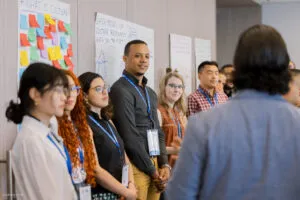As global citizens we need to come together to save our planet, our people, our shared prosperity and create a peaceful world where we and future generations can live and thrive. The AFS Youth Assembly is a global platform that cultivates an international network of young leaders and changemakers through exchange, education, action and impact. The 2024 event agenda will focus on:
- Global Shocks: Tackling Humanitarian Crises
- Future of Education: Leveraging Technology & Innovation
- Save our Planet: Unite for Climate Action
- Food Security: Strengthen Global Food Systems

















